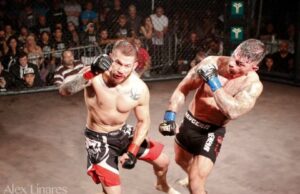NFL Draft: The Next Generation
The NFL Draft has gone from an unheard-of event that no one cared about to a major sporting event that spans three days. Millions of fans tune in to see which college prospects will be playing with their favorite team come next September.
The NFL Draft has seven rounds and each team picks at least once per round, although teams can trade with others to change how many picks they have per round, as well as when they make their pick. The initial drafting order is based off of the records of the teams from the previous year, starting with the worst record and ending with the best.
Going into the 2016 Draft, the biggest question was over the two top rated quarterbacks, Jonathan Goff from Berkeley, and Carson Wentz from North Dakota State University. Both quarterbacks were talented, but there were questions heading into the Draft about both. Goff is small for an NFL quarterback, although he throws well. Meanwhile Wentz is bigger, but he played at a smaller school against easier competition than Goff.
But the months-long debate was silenced with the first two picks of the first round. Before the Draft started, the Los Angeles Rams had traded with the Tennessee Titans for the first overall pick, and they selected Jonathan Goff, making him the first college player drafted.
The Philadelphia Eagles followed suit. They traded with the Cleveland Browns to move up to the second overall pick and drafted Carson Wentz, and just like that both quarterbacks were gone.
But even after the two quarterbacks were gone and the biggest questions of the draft were answered, there were many other star college athletes left to be taken. Names like Ezekiel Elliot, Joey Bosa, Paxton Lynch, Will Fuller, and Braxton Miller were still on the table.
After the two quarterbacks, the next player to go was Joey Bosa, a defensive lineman who was drafted by the San Diego Chargers.
At twenty-one overall Will Fuller, a wide receiver from Notre Dame with blazing fast speed, was drafted by the Houston Texans. That was a great pick for the Texans because they already have one of the best receivers in the league today, DeAndre Hopkins. The receiving pair will be amazing weapons for the new quarterback that the Texans took earlier this year in free agency: ex-Denver Bronco, Brock Osweiler. The Houston Texans have re-shaped their offense this year, and will hope to go much further this year than last.
After losing both Peyton Manning and Brock Osweiler after the same season, the Super Bowl Champion Denver Broncos found themselves in a deep hole after the season ended. Their defense is still one of the best around, but they lost all their quarterbacks. In the off-season the Broncos picked up Mark Sanchez, who is famous for the Butt Fumble. But in the draft they drafted the third best quarterback, Paxton Lynch from the University of Memphis. Paxton Lynch has all the measurables, but the issue is that he is not ready to command an NFL-style offense. He has not taken many snaps from under center, and because of that he dropped deeper into the draft than some thought that he would. The Denver Broncos capitalized on that and drafted him, hoping that with some years to develop, he can solve their quarterback problem.
Another team with potential quarterback problems is the Dallas Cowboys. For years, Tony Romo has led that offense, but now he is thirty-six years old, and with multiple back surgeries and shoulder injuries, there are now questions about how much longer Tony Romo can last. General Manager of the Dallas Cowboys, Jerry Jones, tried to make a trade with the New York Jets so that the Cowboys could move up in the drafting order and draft Paxton Lynch before the Broncos did, but the trade with New York fell through. When the Broncos took Lynch, the Dallas Cowboys drafted running back Ezekiel Elliott from Ohio State University.
Elliot had an amazing college career, and was part of the team when Ohio State won the National Championship for college football against the Oregon Ducks. The Dallas Cowboys needed a running back and so taking Elliott was a good choice and an answer to a problem in Dallas.
Each team tries to do everything they can to fill the holes in their roster come the draft, and they pick their players based on the best information, analysis, and planning possible. But at the end of the day, it is impossible to perfectly predict an athlete’s future and talent. With these year’s draft over, the only thing to do now is to suit up, and see who picked right on Draft Day.



